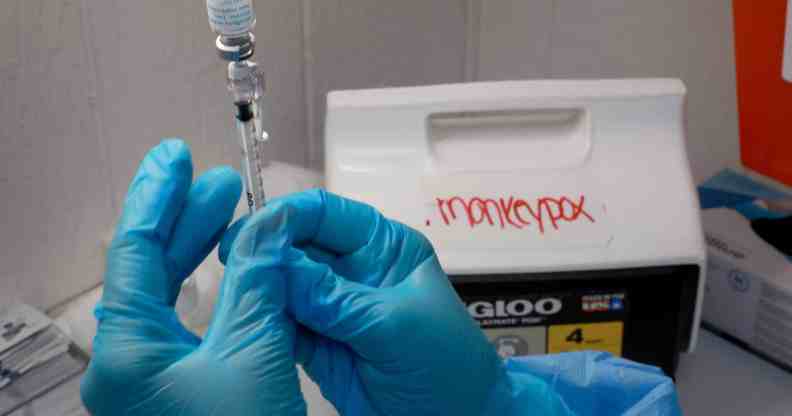Monkeypox: New study suggests virus lingers but doesn’t survive on surfaces

A CDC report finds that monkeypox can linger on surfaces (Joe Raedle/Getty Images)
Monkeypox can linger on household objects and surfaces but will not survive as a live virus, a new US government study has suggested.
As part of the Centers for Disease Control and Prevention (CDC) report, two monkeypox patients sharing a house said they disinfected surfaces, washed their hands several times a day and showered regularly.
Researchers still found the virus on 70 per cent of high-contact areas 20 days after their symptoms began.
These areas included sofas, blankets, a coffee machine, and light switches.
The CDC claimed, despite this, no live virus was detected on any of the items or surfaces, suggesting that the chance of the virus spreading through household items is low.
The current scientific understanding is that monkeypox mostly spreads through close skin-to-skin contact, such as during sex.
The report cautioned: “Persons living in or visiting the home of someone with monkeypox should follow appropriate precautions against indirect exposure and transmission by wearing a well-fitting mask, avoiding touching possibly contaminated surfaces, maintaining appropriate hand hygiene, avoiding sharing eating utensils, clothing, bedding, or towels, and following home disinfection recommendations.”
In a household with 2 monkeypox patients who had been isolating at home for nearly 3 weeks and reported doing routine household cleaning, no objects or surfaces sampled in the household had live virus present, a new @CDCMMWR finds: https://t.co/Ss7x6JT62y. pic.twitter.com/cKxP6MWZIN
— CDC (@CDCgov) August 19, 2022
There have been 41,358 global cases of monkeypox during the 2022 current outbreak, according to the CDC’s latest data as of Friday (19 August), with gay and bisexual men forming a large proportion of those affected.
There have been 3,195 cases in the UK as of 15 August. While new cases continue to be reported, the UK government has noted a decline in numbers.
However, the UK is on the verge of running out of monkeypox vaccines, with more due to be delivered only in “late September”.
British Association for Sexual Health and HIV (BASHH) president Dr Claire Desnap said: “It’s fantastic that thousands of vaccines have been delivered, we thank individuals in at-risk communities for stepping up to be vaccinated and services making huge efforts to get vaccines out.
“BASHH is concerned about the time it will take to receive more vaccines and will continue to work hard with national agencies to make sure the next round of delivery is as smooth as possible.”
Governments in both the UK and US have been criticised for their handling of the outbreak, with frustrations over slow vaccine roll-outs (though global supply shortages are an issue).
Queer Eye‘s Jonathan Van Ness has previously slammed the US government for not doing enough to prevent and contain the virus, criticising its action as “a day late and a dollar short”.
Writing for TIME Magazine, the presenter and hair stylist compared the “botched” government action on the current monkeypox outbreak to the horror of the AIDs crisis, claiming that for the LGBTQ+ community, “monkeypox is like: same day, different virus.”
He added: “Declaring monkeypox a federal public health emergency on 4 August was a step in the right direction – but it was a day late and a dollar short.”

